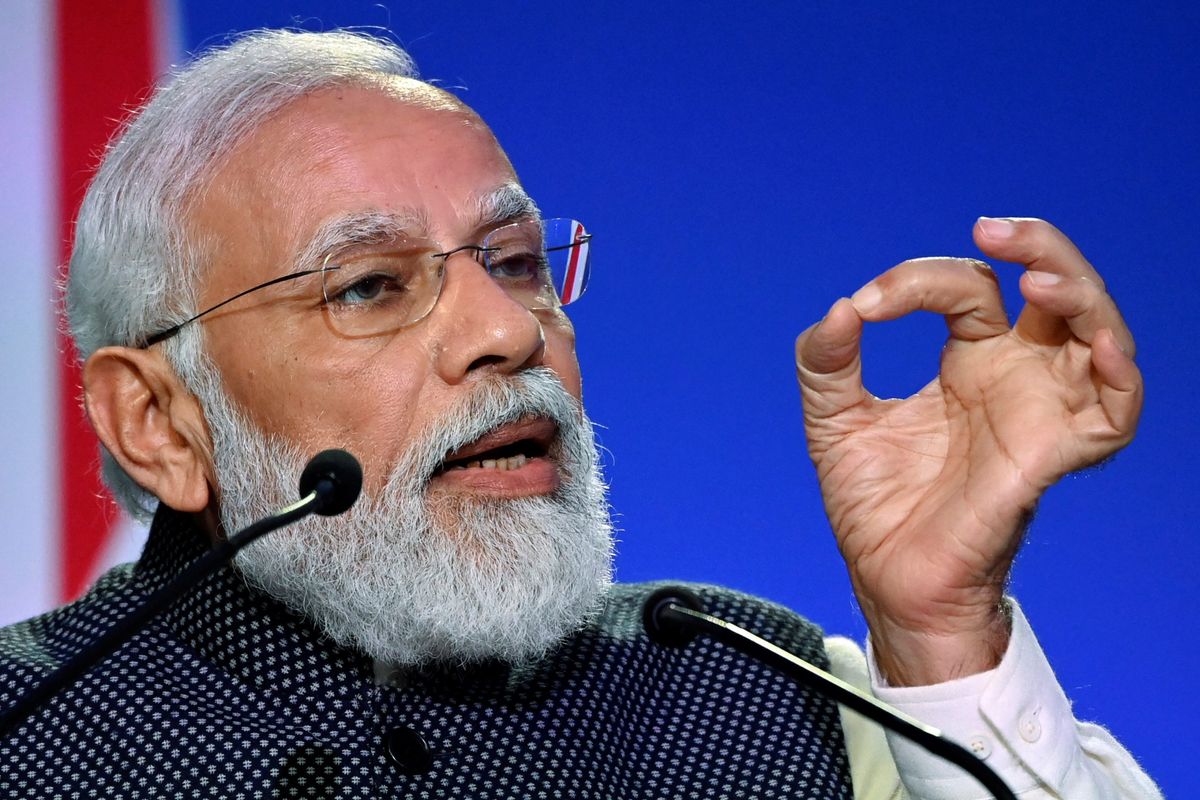Where’s India now with its digital currency?

A few minutes every morning is all you need.
Stay up to date on the world's Headlines and Human Stories. It's fun, it's factual, it's fluff-free.
While the Indian government will allow trading of traditional crypto outside of the country’s CBDC once that’s introduced, according to the sources familiar with the matter, hefty taxes will be imposed to discourage its use.
What’s a digital currency, again?
- Digital currencies, or to be more specific, central bank digital currencies (CBDCs), are essentially a form of centralized cryptocurrency that is a digital form of a regular fiat currency.
- Unlike your typical cryptos, though, such as Bitcoin, CBDCs are run by governments and their central banks, bringing more regulation and less anonymity, which is, ironically, the aspects traditional crypto proponents like.
- But that aside, CBDCs will include certain benefits like instantaneous and low-cost long-distance transfers.
So, is India launching their own digital currency?
- According to comments made by P. Vasudevan, chief general manager at the Department of Payment and Settlement of the Reserve Bank of India (RBI), a pilot program for India’s CBDC could come as early as April 2022.
- “I think somewhere it was said that at least by the first quarter of next year a pilot could be launched,” said Vasudevan. “So we are bullish on that."
- India’s CBDC, a digital version of the rupee, was previously expected to go through a soft launch in December of this year. But there’s a bit of hold up, mainly because so that the RBI can decide on some technical details.
- These details include things like whether the CBDC should be decentralized or semi-centralized and whether they should bypass financial intermediaries altogether. “It’s not a simple thing to just say that CBDC can be a habit from tomorrow on,” Vasudevan explained.
- “We are on the job and we are looking into the various issues and nuances related to CBDC,” said Vasudevan, adding that there shouldn’t be a hurry to launch it.
Is India the first country to launch a digital currency?
- Nope. According to the Atlantic Council’s CBDC tracker, seven countries have already launched digital currencies of their own, with Nigeria being the latest one.
- In fact, 17 other countries have already rolled out their CBDC pilot programs, the most notable one being China, which began minting digital versions of the Chinese yuan earlier this year.
- China also displayed how CBDCs can be configured so that central banks can closely monitor the use of the currency to crack down on criminal activity, enact fines automatically, and more.
- Though the digital yuan hasn’t been entirely rolled out yet, visitors will use it during the 2022 Winter Olympics next February, a situation that will likely be used for the nationwide rollout over the coming years.
Is India taking the same approach as China?
- There are similarities. In fact, the Indian government originally had a plan to ban crypto outright. However, some are now saying it’s likely that will be scaled back.
- Instead, it’s looking like the Indian government will implement a system for approving certain currencies to be bought and sold within the country.
- “Only when a coin has been approved by the government can it be traded, else holding or trading it in may attract a penalty," explained anonymous sources familiar with the matter.
- This comes after Indian Prime Minister Narendra Modi has continually pushed for crypto regulation, citing concerns that it could be used for money laundering and terror financing, a concern widespread across many crypto critics.
- While there hasn’t been any official data published, some estimate that there are 15-20 million crypto investors in India, with the total amount of crypto holdings amounting to around 400 billion rupees (US$5.39 billion).
- The approval process for these currencies would also be intentionally difficult, with it aimed to weed out the majority and only allow for the most worthwhile currencies to be approved.
What’s next?
- Right now, the RBI is still trying to decide exactly where and how it wants to set up the CBDC.
- Regardless, there are still a few months before the CBDC goes into its pilot program and likely much longer before it gets properly implemented nationwide.
- But this month, the Indian government is also looking to introduce and pass a law to regulate posession and trading of Bitcoin and other traditional cryptos.
- And, on top of that, while the Indian government will allow trading of these traditional cryptos outside of the country’s CBDC once that’s introduced, according to the sources familiar with the matter, hefty taxes will be imposed to discourage its use.
You drive the stories at TMS. DM us which headline you want us to explain, or email us.







Comments ()